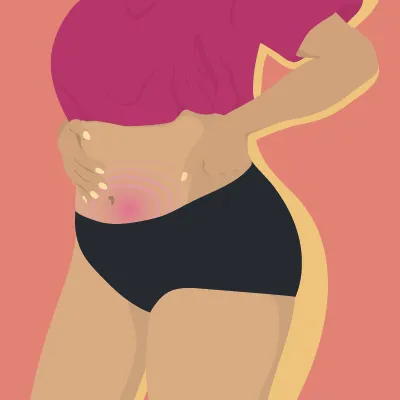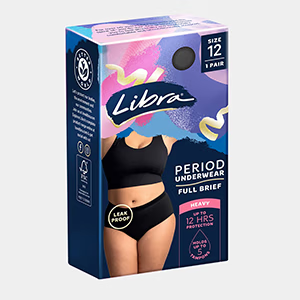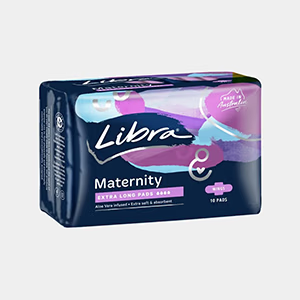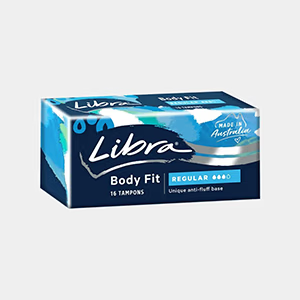Nov 11, 2019
Contraception: What you need to know
Word to the wise girlfriend: being clued-up about contraception is an absolute *must*! Whether you’re sexually active or planning to be, it’s important to know how to protect yourself from unwanted pregnancy and STIs. And when it comes to methods of contraception, you’ve got a few options. From condoms and diaphragms, right down to the birth control pill; read on sis, we’ve covered all the types of contraception for you!
So, what exactly is contraception and how does it work? Basically, contraception is a method or device used to prevent you from getting pregnant. While each type of contraception may work in a different way, the goal of each one is to stop the sperm from fertilizing the egg (resulting in pregnancy). Some types are known to be more effective than others, some can be used in combination with one another, and some may be better suited to your lifestyle. It’s super important to know the ‘what’s what’ of contraceptives for you to decide!
Contraceptive Barriers
How does it work? Contraceptive barriers work by preventing sperm from entering a woman’s uterus. Some can also guard you from STIs (Sexually Transmitted Infections).
- Male condoms: A rubber/synthetic sheath that’s worn over an erect penis in order to collect semen. If used correctly, condoms are 98% effective at preventing pregnancy. Additionally, condoms act as a barrier against STIs – which is a huge plus! They’re readily available for purchase at your chemist or local supermarket.
- Female condoms: A soft pouch made of latex, with two flexible rings at each end. It sits loosely inside the vagina and is held in place by the rings. Used correctly, they’re 95% effective at preventing pregnancy, and also act as a barrier against STIs. These are usually a little more expensive and tricky to find.
- Diaphragms: A shallow cup-shape barrier made of silicone. It works by insertion into the vagina and when used perfectly is 94% effective at preventing pregnancy, however it doesn’t offer STI protection. There is one type that you can purchase from pharmacies and family planning clinics in Australia (called Caya®)
Hormonal Contraception
How does it work? Hormonal Contraception works by influencing a woman’s hormone levels, generally to stop ovulation from occurring.
- IntraUterine Device (IUD): A small contraceptive device that’s placed inside your uterus by your doctor. Sounds scary, but it’s a totally common procedure! There are two kinds, the copper IUD and the hormone-releasing IUD. They work by stopping the sperm from reaching and fertilising the egg. IUDs are one of the most effective types of contraceptives, with a 99.8% rate of effectiveness! They last 5 – 10 years (but can be medically removed at any time).
- Contraceptive implant: A small plastic rod, around the size of a match, placed under the skin of your upper arm by your GP. It works by releasing a small dose of hormones that stop your ovaries from releasing an egg each month (aka ovulation). It lasts for 3 years, but can be easily removed sooner, and is over 99.95% effective.
- Depo injection: An injection of the hormone progestogen, done by your GP. It works by preventing your ovaries from releasing an egg each month. Taken on time, it’s more than 99.8% effective at preventing pregnancy and lasts for around 12-14 weeks.
- Contraceptive pills: Little pills/tablets that you take at the same time each day. There are two different types, the combined pill (containing the hormones oestrogen and progestogen) and the mini pill (containing progestogen only). The combined pill works by preventing ovulation and thickening the mucus in your cervix, whereas the mini pill works by changing the mucus at the entrance of the uterus to stop sperm from passing through. If taken correctly, these pills are over 99.7% effective. If you’d like to opt for the pill, you need to have a chat with your GP for a prescription.
- Vaginal ring: A soft plastic ring that contains two hormones, oestrogen and progestogen. It works by insertion into the vagina (by you – just like a tampon!) and can be kept in for 3 weeks before being taken out so you can have your period. The ring then needs to be replaced after your period, as they are only effective for 4 weeks. They work by preventing ovulation and are over 99.7% effective when used correctly. The NuvaRing® is available via a prescription from your GP.
Emergency Contraception
How does it work? This method of contraception works by stopping or delaying ovulation.
- Emergency contraceptive pills: Better known as ‘the morning after pill’, this method is a last resort to be used after unprotected sex. You might use the morning after pill if you didn’t use any contraception, the condom broke, you forgot to take your usual contraception, or if you were sexually assaulted. They don’t cause an abortion; they work by stopping/delaying ovulation, and are more effective the sooner they’re taken. They can prevent around 85% of unwanted pregnancies, however they offer zilch protection against STIs.
Natural Methods
How does it work? This type of contraception works through Fertility Awareness Based Methods (FABMs). As there is a lot of room for error, it’s not recommended for young people.
- Natural family planning: This involves using calendars to estimate when you can have sex and avoiding sex around the time where you are most likely to get pregnant, aka when you’re fertile. It works by tracking your fertility through your bodily changes and menstrual cycle, and takes a LOT of close monitoring. This leaves room for error, with some methods being only 76% effective at preventing pregnancy.
- Withdrawal method: The withdrawal method is whereby the male pulls out of the vagina before ejaculation. While this is better than no contraception, it certainly involves a lot of risk with timing and trust! It may only be 78% effective if the male pre-ejaculates or was unable to withdraw in time.
Permanent Contraception
How does it work? These contraceptive methods work through sterilisation. Being a permanent method, you’d only use it when you’re finished having kids!
- For men (vasectomy): Cutting or blocking tubes that carry the sperm to stop it from being discharged.
- For women (tubal ligation): Clipping or blocking the fallopian tubes to stop eggs being released into womb.
With all these options available, it’s great to have a think about what might be best for you and have a chat with your GP to decide. From barrier contraceptives to hormonal contraceptives; no matter what method(s) you choose to use, it’s super important to keep your safety, boundaries and health in mind girlfriend. At the end of the day, protecting yourself from unwanted pregnancy and STIs is part and parcel of practising safe sex! Stay equipped with knowledge and never ever feel pressured into anything you’re uncomfortable with, girl.
Love, Libra x
Anything else? Asaleo Care makes no warranties or representations regarding the completeness or accuracy of the information. This information should be used only as a guide and should not be relied upon as a substitute for professional, medical or other health professional advice.







